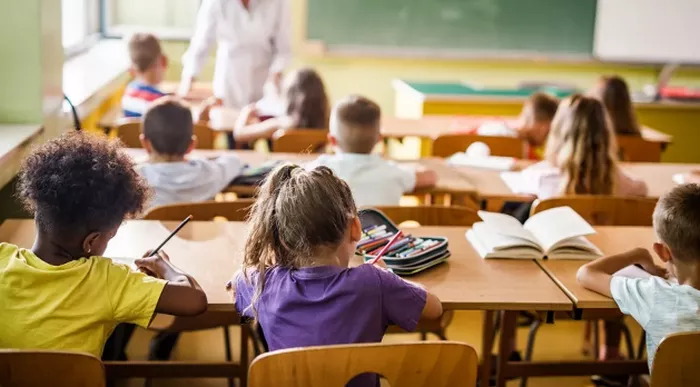Growing concerns about public education in the United States have led many parents to choose micro-schools, a type of alternative learning center that has gained popularity since the COVID-19 pandemic.
The nonprofit EdChoice reports that school closures prompted many families to reconsider traditional educational methods. Micro-schools, which emerged in the early 2000s, are typically one-room schoolhouses where students of various ages learn together in small classes.
Dr. James A. Barham, Senior Vice President of Academic Influence, explained to Fox News Digital that micro-schools usually have 10 to 20 students, with a student-teacher ratio between 5-to-1 and 10-to-1, compared to the 20-to-1 ratio in traditional schools.
“Many micro-schools focus on project-based and experiential learning,” Barham said. “Students are actively engaged because they work on hands-on projects and make real-world connections, much like the Friday field trips I enjoyed during my school days.”
Micro-schools, also called learning pods, provide tailored schedules and curriculums to meet individual needs. They are seen as a middle ground between traditional schooling and homeschooling.
Barham, who has experience with both public and private schools, attributed the growing popularity of micro-schools to their flexibility and focus on student choice. Families are increasingly seeking alternatives to standardized testing and the one-size-fits-all model.
While some micro-schools are parent-led, others are part of larger networks. They can be either tuition-free or fee-based, often costing less than private schools due to their smaller size.
“The pandemic’s challenges have increased interest in micro-schools,” Barham said. “Their close-knit approach was effective for virtual learning and addressing students’ social-emotional needs. I expect more families to be drawn to their student-centered philosophy.”
Chenadra Washington, CEO of Black Orchids PR, turned to micro-schools after her son had a difficult experience at a traditional school in Texas. He now attends a micro-school three days a week and is homeschooled the other two days.
“This hybrid approach allows me to stay connected to his education, ensuring it aligns with our values and his needs. It also gives me peace of mind, knowing I’m closely involved in his learning,” Washington said.
She emphasized that micro-schools’ flexible, personalized nature caters to different learning styles, offering parents like her greater involvement in their child’s education.
A 2023 Gallup poll revealed that only 26% of Americans have a “great deal” or “fair amount” of confidence in public education. Public trust in institutions like schools, police, tech companies, and big businesses is low, while confidence in small businesses remains high.
Siri Fiske, a leader in the global micro-school movement, noted that many of these programs use “mastery-based learning” instead of the traditional “factory model” where students of the same age learn the same material.
“We group kids by their needs rather than age,” Fiske told Fox News Digital. “For example, a 9-year-old who writes at a second-grade level but reads at a fifth-grade level would be placed in different classes based on proficiency.”
Fiske pointed out that while small schools have been around since the early days of the United States, micro-schools take a unique approach by tailoring assignments to individual students using online content. For instance, a girl who loves corgis might have writing assignments based on that interest.
The concept has even reached the tech world. In 2016, Fiske visited Astra Nova School, an online school founded by Elon Musk at SpaceX, which employs similar interdisciplinary and problem-based learning models.
Beyond the pandemic, dissatisfaction with traditional education due to inadequate teaching resources and the treatment of teaching as a profession has driven more parents to seek alternative learning methods. Fiske also mentioned that easy access to information on the Internet has led parents to question traditional memorization and recitation methods. Additionally, political factors have influenced parents’ educational choices.
“One family recently withdrew their child from a public school in Maryland because the curriculum on family structures didn’t align with their values,” she said.
These concerns have led communities to come together, involving parents more deeply in their children’s education.
“Parents are generally cautious about taking risks with their children’s education. However, the cultural shift towards accepting alternative education has opened many new doors,” Fiske concluded.


